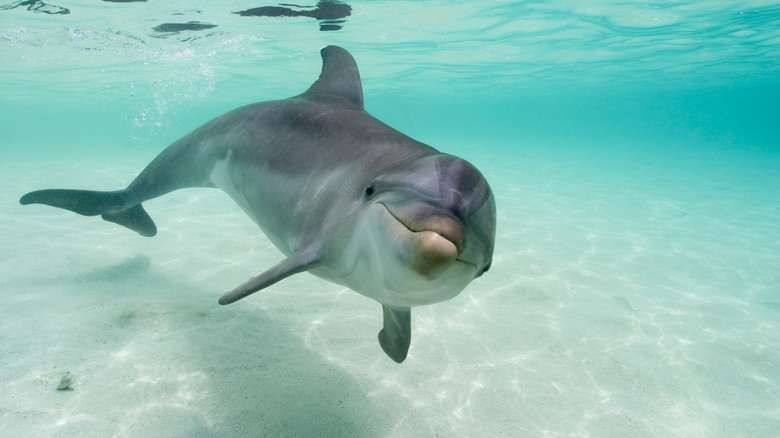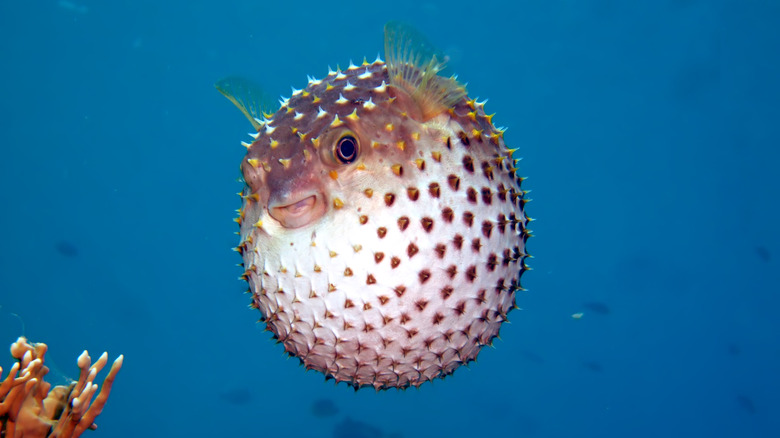The Bizarre Way Dolphins Seem To Get High
As the dominant species on planet Earth, it's easy for us humans to assume that we could outsmart any other animal. That may be true in some cases, but animals are smarter than you might think, especially dolphins. Many parallels can be drawn between dolphins and humans, most notably the fact that dolphins use vocal communication and even refer to each other using signature whistles akin to our own human names. Not all of our species' similarities are so intellectual though. Dolphins have been observed having recreational sex and masturbating, showing a clear penchant for worldly pleasures. That's only the half of it though, as some evidence suggests that dolphins may even enjoy getting high. Their drug of choice? Pufferfish.
A 2014 BBC documentary entitled, "Dolphin: Spy in the Pod," captured footage of unusual behavior amongst a group of bottlenose dolphins off the coast of Mozambique. The dolphins were tossing a pufferfish between one another like a beach ball, prodding it with their snouts. When each dolphin received the pufferfish, they would chew on it, but not hard enough to actually eat the fish. As they did so, the dolphins seemed to drift into an altered state, floating to the surface and gazing, mesmerized, at their own reflections in the water. It was obvious that the dolphins had no intention of eating the fish; if so they would have torn it apart in seconds flat. Instead, documentarians believe the dolphins were purposefully forcing the fish to release toxins into the water for them to get high on.
Fun for dolphins, deadly for humans
When threatened by predators, pufferfish protect themselves by inflating and releasing a toxin called tetrodotoxin. To humans, tetrodotoxin is one of the most dangerous substances in the world, being over 1,000 times more poisonous than cyanide. It is notorious for causing poisonings at sushi restaurants in Japan, where pufferfish, known as fugu, are a prized dish. It takes an incredibly skilled chef to safely prepare fugu, and even then, roughly 50 people suffer tetrodotoxin poisoning in Japan each year. There is no known antidote.
It seems that dolphins are more skilled at handling pufferfish than even the most seasoned sushi chefs. The gentle way in which they chew shows careful control, and the dolphins do not actually ingest the fish itself. This expertise indicates that the dolphins had observed and engaged in this behavior before. Pufferfish are among the animals that share dolphin habitats in the tropics, so the opportunities to utilize them would be plentiful. Although tetrodotoxin can easily cause death, research has also shown that minute, carefully-measured doses are a highly effective painkiller. Painkillers can be seriously addictive to humans, and so too it seems, to dolphins.
Not all scientists are convinced that dolphins actually get high from pufferfish. Dolphins play with many types of fish in the same way, and they have also been seen admiring their reflections without any indication of substance use. Tetrodotoxin may not even affect them at all. Perhaps it's a high, or perhaps it's just a game of catch.

